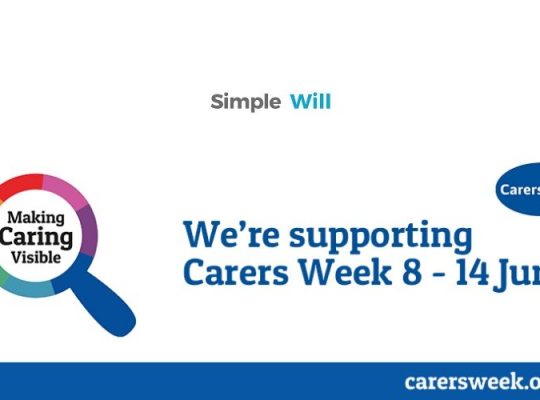At the start of the Pandemic the demand for Wills rose exponentially. However, lockdown and self isolation meant that many people were unable to get their Wills witnessed in accordance with the Wills Act 1837, an essential requirement for a legally binding Will.
We heard of people going to crazy lengths to get Wills Witnessed, like using car bonnets, witnesses dressing in full PPE and even trying to sign Wills through windows. For a lot of people, especially the vulnerable, this caused many challenges. But towards the end 2020 the law in the UK was changed to allow remote witnessing of Wills to protect those who were isolating or shielding.
Although the UK has a new roadmap out of lockdown we expect the recommendations for social distancing will be in place for while. So, if you’re planning on making a Will anytime soon then follow our guide on how to get your Will witnessed remotely.
The Rise of DIY Wills
During the Pandemic the rise of DYI Wills has increased dramatically, but these are often hand drafted and not legally binding. Unfortunately this means the intended beneficiaries are left with nothing and it’s estimated that 1000s of Wills are rejected every year.
When making a Will it is important that you follow the right steps to ensure that it is legally binding. You may want to check out our Ultimate Checklist for Making a Will.
Main Reasons Wills are Rejected
Capacity of the Testamentary
If you’re making a Will you must demonstrate that you have mental capacity to do so. This is often referred to as ‘‘testamentary capacity’. Testamentary capacity means that you’re able to fully understand and communicate your wishes. This includes understanding how much your estate is worth and who you’d like to leave it to. Mental capacity also includes the ability to make your own decisions without outside influence or pressure.
Age
You must be 18 or above to write a Will.
Validity of a Will
Wills can be rejected if an individual or group challenge your Will. This is particularly common if people have been excluded or receive a lesser amount than other beneficiaries. The challenge normally relates to mental capacity at the time of writing the Will as a result of old age, effects of medication or mental deterioration.
If you’re worried that someone may challenge your Will you must seek advice from a professional Will Writer. You can also ask a medical practitioner to witness your Will who can vouch for your mental capacity.
Not Witnessed
For a Will to be legally binding it must be witnessed. This means that your Will must be signed by two independent witnesses in your ‘presence’ (this includes virtual presence). Without proper signatures from both the owner of the Will (testator) and witnesses it’s highly likely the Will will be rejected and will not be admitted to probate.
Best Practices for Witnessing Wills
- Witnesses must ideally be over the age of 18 and have mental capacity
- Your witnesses must be independent, meaning they can’t be named beneficiaries or related to any of the beneficiaries through either blood or marriage.
- Wills must be signed while both the witnesses are watching

Guild to Remote Witnessing
The law in the UK has recently changed to allow remote witnessing of Wills. This means that your Will can be signed in the ‘remote’ presence of your witnesses. Although the change in the law is only temporary it does cover all Wills created and witnessed this way dating back to 31st January 2020.
Our top tips for remote video Witnessing
- Virtual witnessing must still be done with a minimum of two witnesses at the same time
- Any device can be used for remote witnessing. You just need to ensure that you can make and receive video calls. For mobiles, apps like Whats App or Facebook Messenger are great for this. Zoom is another free conference call app, but calls are limited to 30 minutes with a free account.
- Make sure that both you and your witnesses have a good internet connection. You should have a good quality image that doesn’t lag or freeze. The sound should be clear and audible at all times.
- The witnesses should be able to clearly see and hear the testator, and vice versa
- The signatures or initials of the testator and witnesses should be made on each page to confirm that the Will is a complete document
- The attestation clause should reflect that remote witnessing has taken place
- Once signed by the testator, Wills should be posted to the witnesses within 24 hours by recorded delivery.
- This does not need to be overseen by a solicitor. If a solicitor is used you will need to make a note of their attendance.
- Finally, Wills must be resigned by the original or new witnesses when it is safe or permitted to do so.
Make Sure It’s Legal
Currently the legislation on virtual witnessing of Wills is likely to be reversed in 2022. So it’s a good idea to check with a professional Will writer or Solicitor before you proceed.
No matter what your circumstances, we’d always recommend having a Will. We’ve welcomed the government’s decision to make it easier for us to get our affairs in order by allowing Wills to be witnessed remotely. Follow our guide above to avoid common mistakes and always check with an expert if you’re in doubt.







